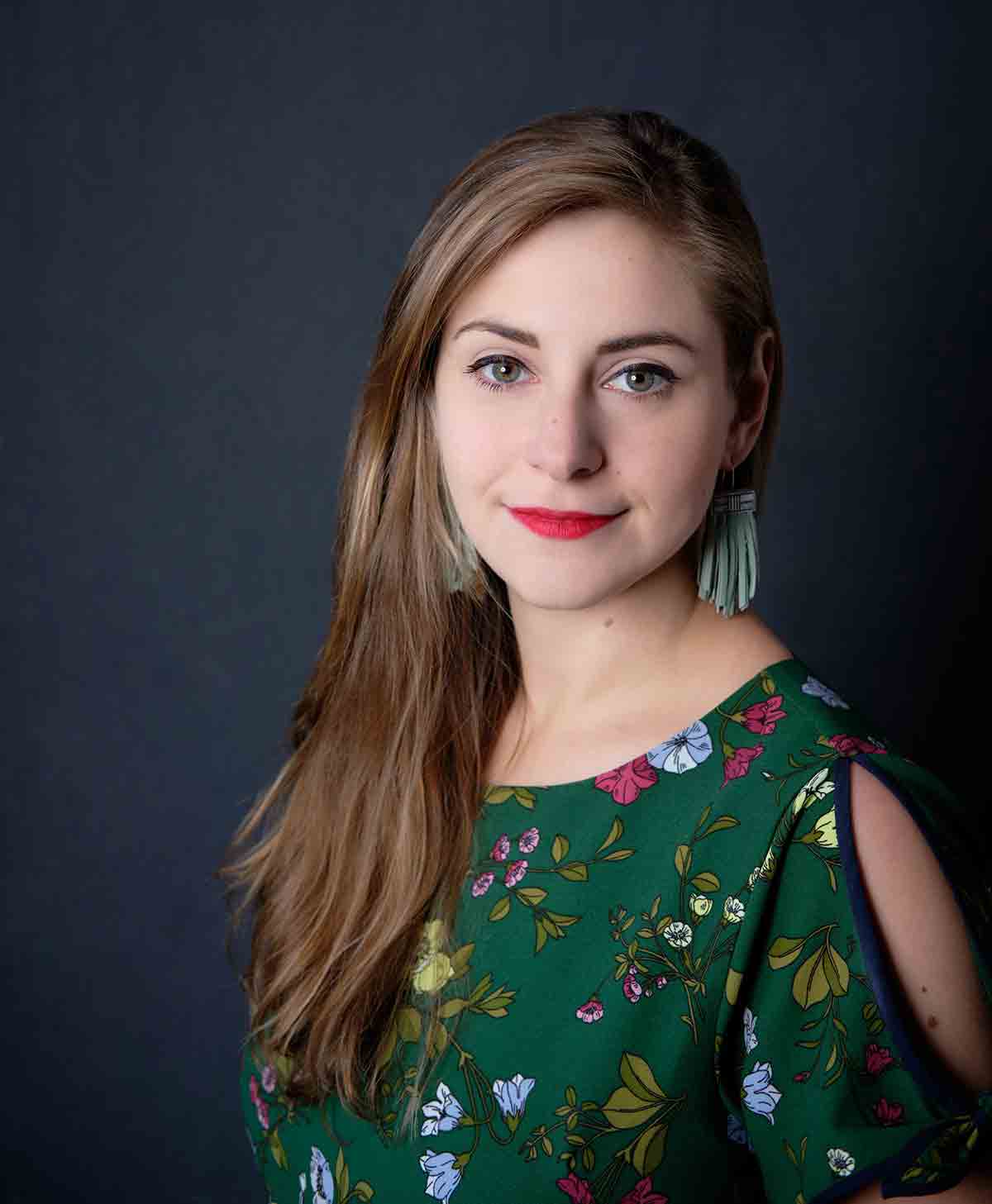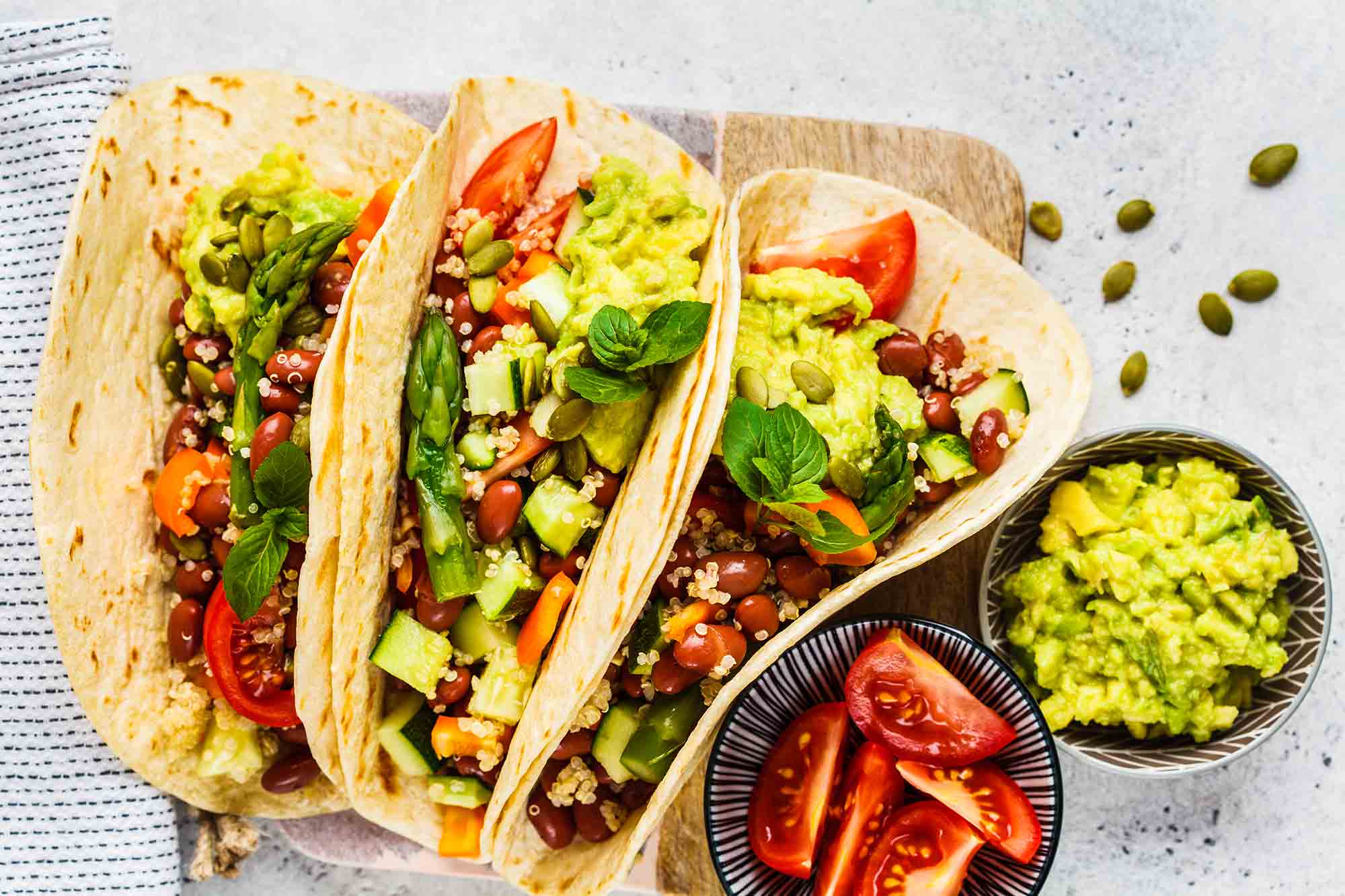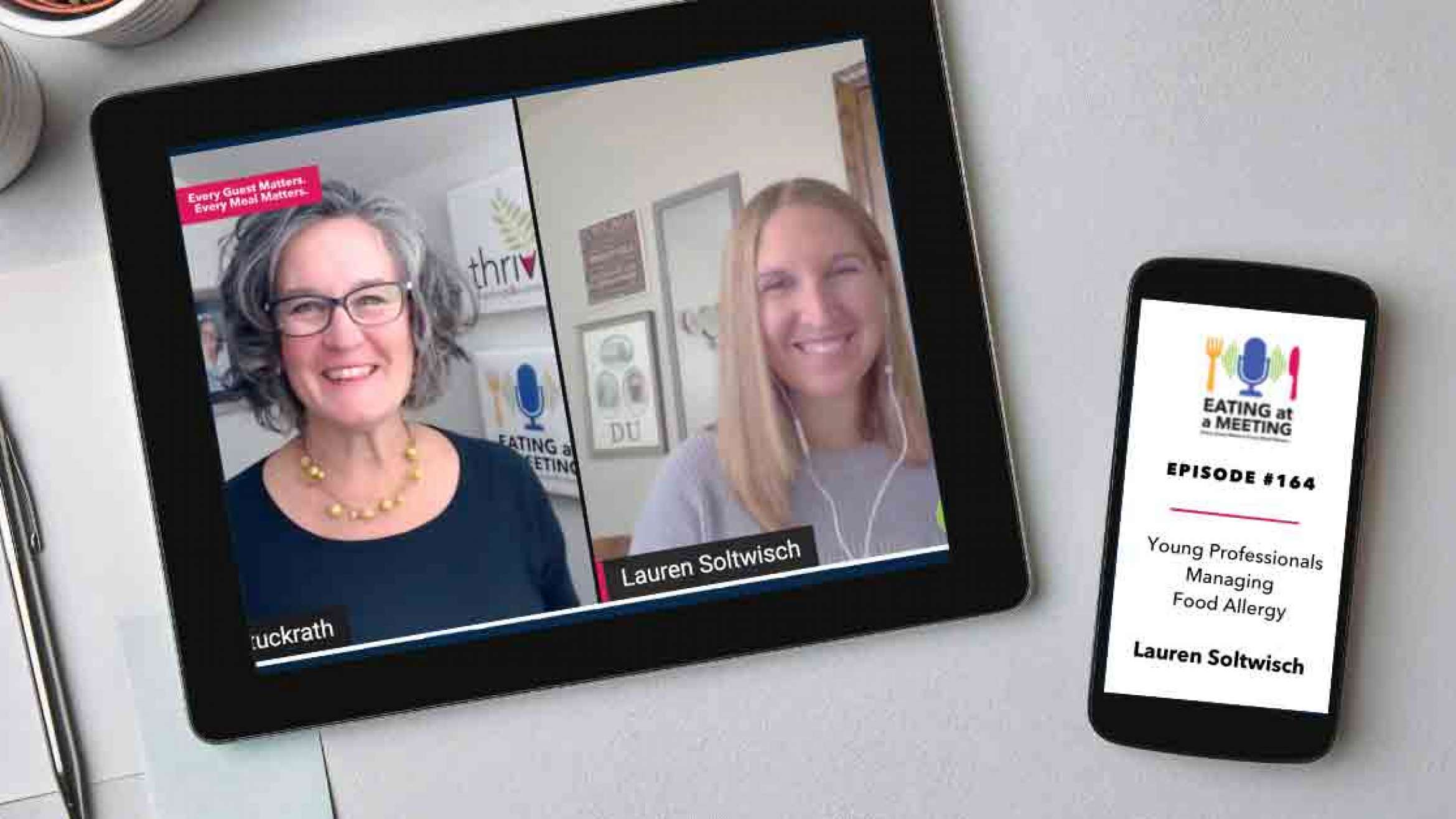Amelia Ekus may be in charge of feeding employees of one of the country’s top tech companies, but her café is far from the stereotypical corporate cafeteria — and she’s no lunch lady.
With a degree in food industry activism and a minor in social entrepreneurship from the Gallatin School at New York University, it’s no surprise that Amelia Ekus is dedicated to providing food that is inclusive to all, regardless of their religious or medical dietary restrictions, and that she injects sustainability and philanthropy into the food services she provides.
What is a little surprising is that, after cutting her culinary teeth managing several restaurants, her career began arcing away from restaurants. She served as director of community development for restaurant management company Epicurean Management, and headed up food and beverage for private membership community Neuehouse, before joining Guckenheimer, where she provides food service solutions for corporate clients, including large tech companies. You know, what some people would call a corporate cafeteria. Just don’t call it that in front of Amelia!
What would you say has most inspired you in the work you do now?
My entry into the food industry started at a very, very young age. My parents’ businesses [her mother’s literary agency and PR firm for cookbook authors and her father’s restaurant] meant that we had chefs coming to the house, cooking and joining us for meals. We didn’t even know how lucky we were to be spending time with these folks. It opened me up to a world of food that I wouldn’t have been exposed to otherwise.
My task was always to set the table, and I loved making every place setting perfect and creating an environment that people felt comfortable in. Then, when my father opened a barbecue restaurant, I learned about service and how to select your team based on their passion for the work (you can always teach skills later).
I also have family members with food allergies, and I made it a priority to learn how to accommodate those with food allergies long before “gluten-free” and other labels became included on menus as often as they are now.
What has been your greatest joy as a woman in food and beverage industry?
I’d say it’s working with women and our allies inside and outside the food and beverage industry. I am very lucky in that I have a strong female presence on my team, I work with a lot of women and I work for a company that has a female CEO. Being able to help other women who want to grow in this industry is a huge source of joy for me. And it’s really a huge honor to be entrusted with helping somebody to grow into their own potential.
My task was always to set the table, and I loved making every place setting perfect and creating an environment that people felt comfortable in. Then, when my father opened a barbecue restaurant, I learned about service and how to select your team based on their passion for the work (you can always teach skills later).
What advice would you give to young women coming up in the industry now?
When we have a lack of knowledge or lack of confidence in one particular area, it can start to chip away at the confidence we have about the things that we’re really good at.
I think that we need to be able to acknowledge the things that we’re not good at and take the initiative to get better at those things. If it makes you uncomfortable, if it’s a task that you’re dreading, do that thing first. Go to somebody who is really, really good at it and ask for help, even if it is intimidating.
We’re all going through that now [during the novel coronavirus outbreak]. Restaurants are delivering free food to hospital workers and opening their kitchens to get food to people who need it, and schools are providing lunches for the kids who depend on those school food programs. We’re all having to learn new ways of doing things.
I’m putting a lot of thought right now into how I support my team because they’re working in really unconventional ways. As a leader, how can you support your people? Is there a way to recalibrate your own expectations so that they have the freedom to say, “I don’t know how to do this,” and then learn how to do it?
How are you going to apply what you learned about social activism and entrepreneurship during this crisis?
That’s the question of the hour, isn’t it? The immediate answer is that I have a large team of people who are concerned about when they can come back to work. It’s my job to get not just an answer to that question, but to create a more sustainable future for everyone.
Am I doing everything in my power to give each of my team members the skills they need to grow in their careers, not just to succeed in their current positions? If restaurants stay closed for months on end, what other options do they have, and have I helped them learn those skills?
And in the longer term?
My ultimate goal is to someday open my own restaurant, one with an untraditional financial investment structure that can give back to all the different stakeholders involved in operating a restaurant, from the employees to the local farmers we want to be able to rely on.
How are you infusing inclusion into your work with your current team?
Inclusion is a buzzword on everyone’s mind, at least in the corporate dining industry. If you take coronavirus out of the equation for now and look at the daily operations before this happened, what we’re doing is really progressive. One of the clients I work with has a full-time registered dietitian on site who reviews every ingredient, every recipe, and every cooking method to ensure we are optimizing for wellness. We’re working to encourage positive relationships with food so each person can create a plan that works best for them.
We also work really hard to source products from minority-, women-owned, and family-owned businesses. Seventy percent of the package goods used by one of our clients are from companies with significant social and environmental initiatives.
Information is power, and being able to provide consistent and honest information about the food we serve and how we’re serving it is the first step to people being able to make informed decisions.
The last piece is to make it effortless. If we omit dairy and utilize products that remove the top eight allergens, it makes it that much easier for folks to feel comfortable and excited about consuming the food — they don’t have to ask for anything special or inconvenience the team to get their needs met.
Is this push coming from Guckenheimer or from your client companies?
It’s really both. The Guckenheimer motto is, “Nourishing inspiration” — we want to use the best ingredients and minimal preparation. And our clients drive the type of culture they want to embody. We find that our best partners share our values, where wellness is a top priority of theirs too.
…you need to be able to put your head on the pillow knowing you did the right thing. That’s the most important guiding principle because it means you will always operate with integrity and care, knowing that you can rest easily knowing that you’ve been true to yourself and that you have looked after those around you.
You’re a brand-new aunt — congratulations! What words of wisdom do you have for your niece and others who will be women of the future?
Especially with everything that’s going on right now, it’s hard to know what the future will look like, and what the role of women in that future world will be. I would pass on to her what my father always told me: At the end of the day, you need to be able to put your head on the pillow knowing you did the right thing.
That’s the most important guiding principle because it means you will always operate with integrity and care, knowing that you can rest easily knowing that you’ve been true to yourself and that you have looked after those around you.
What words of wisdom did your mother, grandmother, or other women in your life share?
My family likes to talk a lot, so there were lots of words of wisdom! But what I have learned from the women in my family has been more from actions than words. I grew up in a family of very strong women. My grandmother worked in my grandfather’s medical practice, and my mother owned her own business (now co-owned with my sister). I watched her run her business while raising my sister and I, and how she, and my father, were huge proponents of women in the food industry.
What do you look forward to in terms of special dietary needs in the food industry?
I look forward to a future where people with allergies and dietary restrictions are better accommodated, where it is widely accepted that many of these restrictions are not a choice but are medical needs.
I also recently became focused on accessibility in restaurants after I broke both of my wrists in a snowboard accident last year. I quickly realized how inaccessible our work and play worlds can be, both for consumers and for our staff. Because I’m in management, I was able to adjust to continue working, but if I were still a server in a restaurant, I would have been out of work. We need to find ways as an industry to create experiences that are inclusive on a completely different level for folks of various abilities as well.
What is your favorite food?
Well, it’s hard to pick just one, but if I had to, I’d say tacos because there are so many variations and fusions with different cultures. But the thing that I love most about tacos is that they are fun to eat! If I had to sustain myself on one food for the rest of my life, it would have to be tacos.
One last question: If you could invite anyone in the world over for dinner, who would you choose?
I would choose RuPaul. He’s a bit controversial, but he is fascinating. He’s somebody who is living his truth and has helped so many people be able to feel comfortable in their skins, to be true to themselves and more accepting of others. He also has taken gay culture into the mainstream in a way that very few others have been able to do. And his ability to power through adversity and still be going strong as a social leader in the world today is remarkable.
I would have to come up with a great outfit though!
Find Amelia online:
LISTEN to the interview with Amelia to learn more and hear directly from her about Encouraging Positive Relationships in and Around Food on the Eating at a Meeting Podcast:




